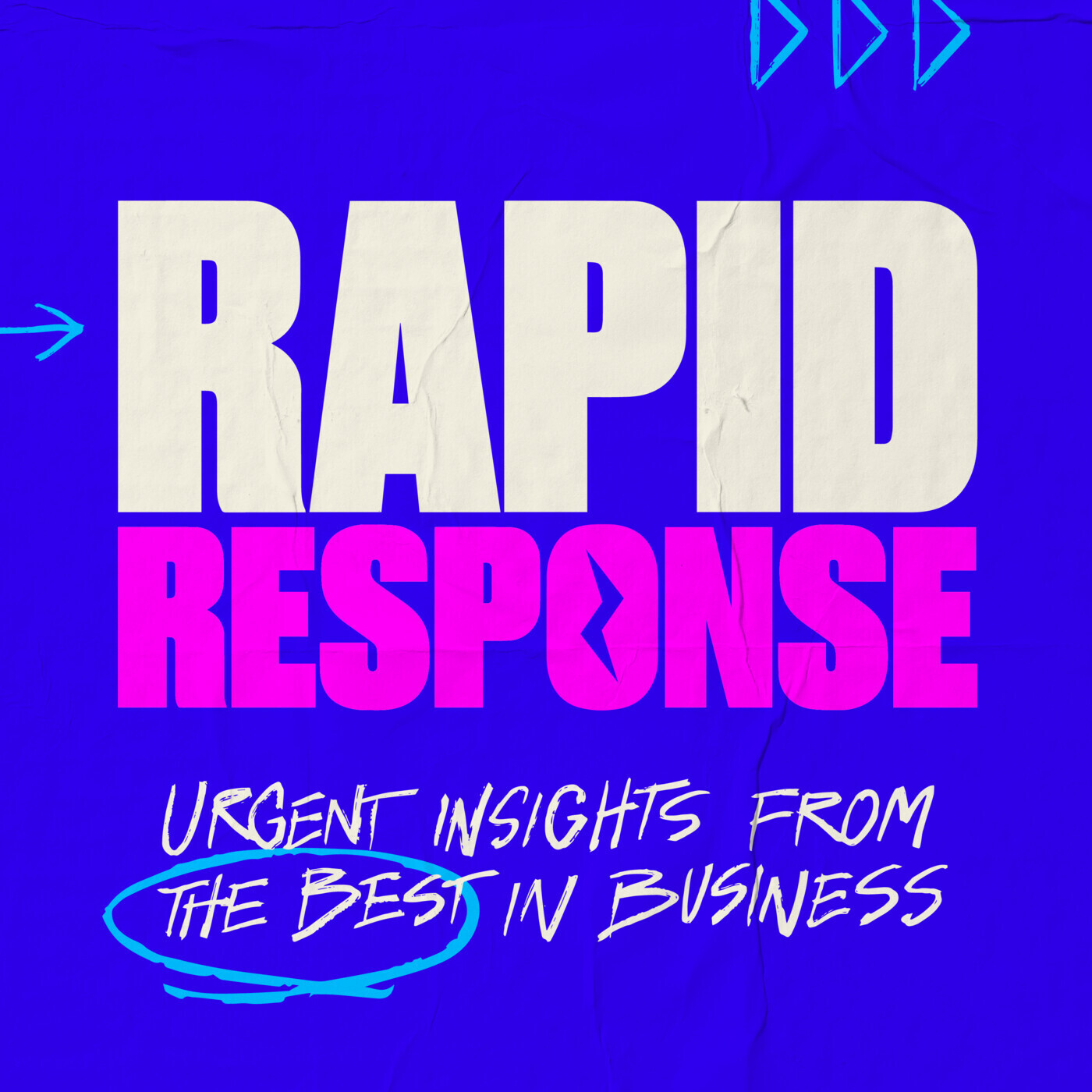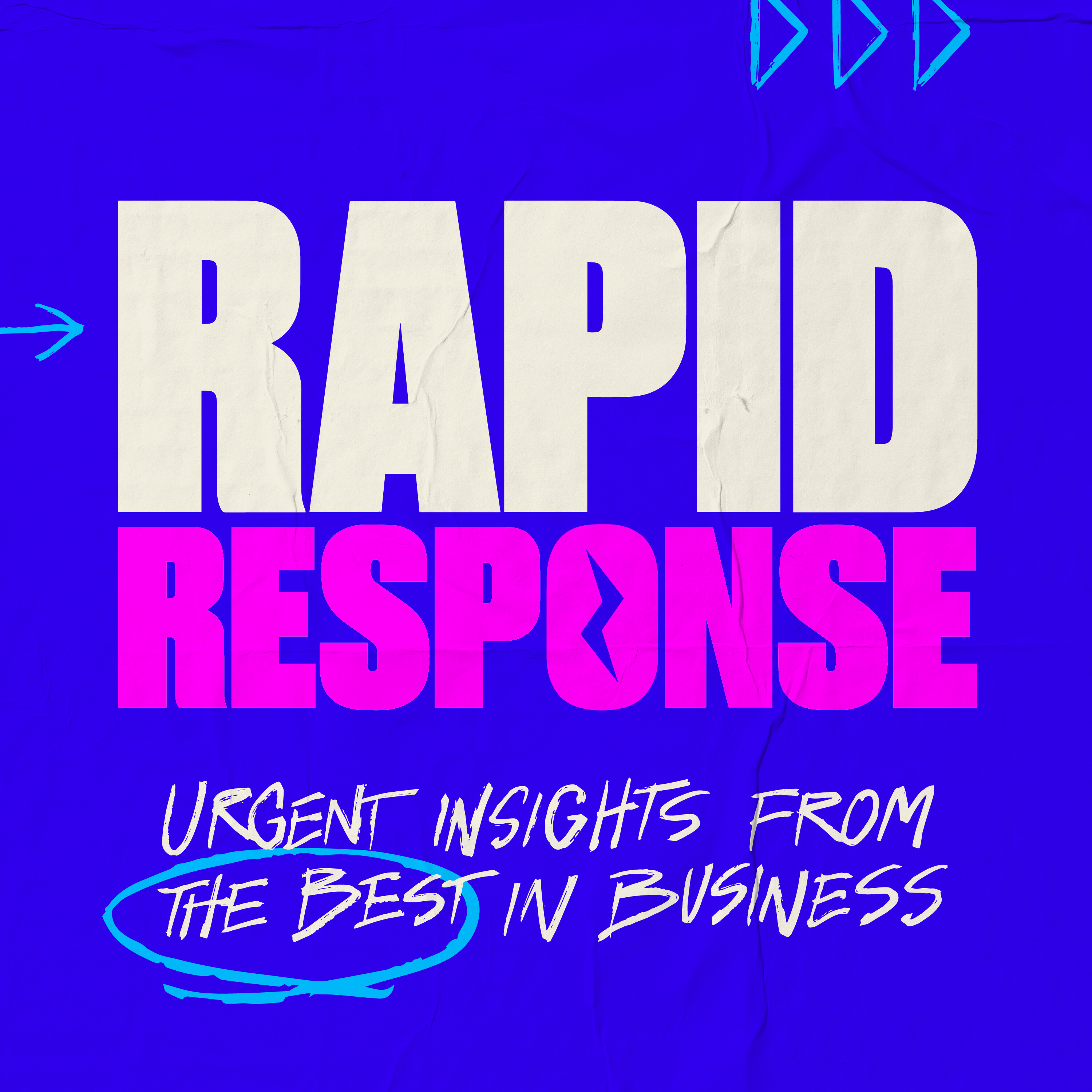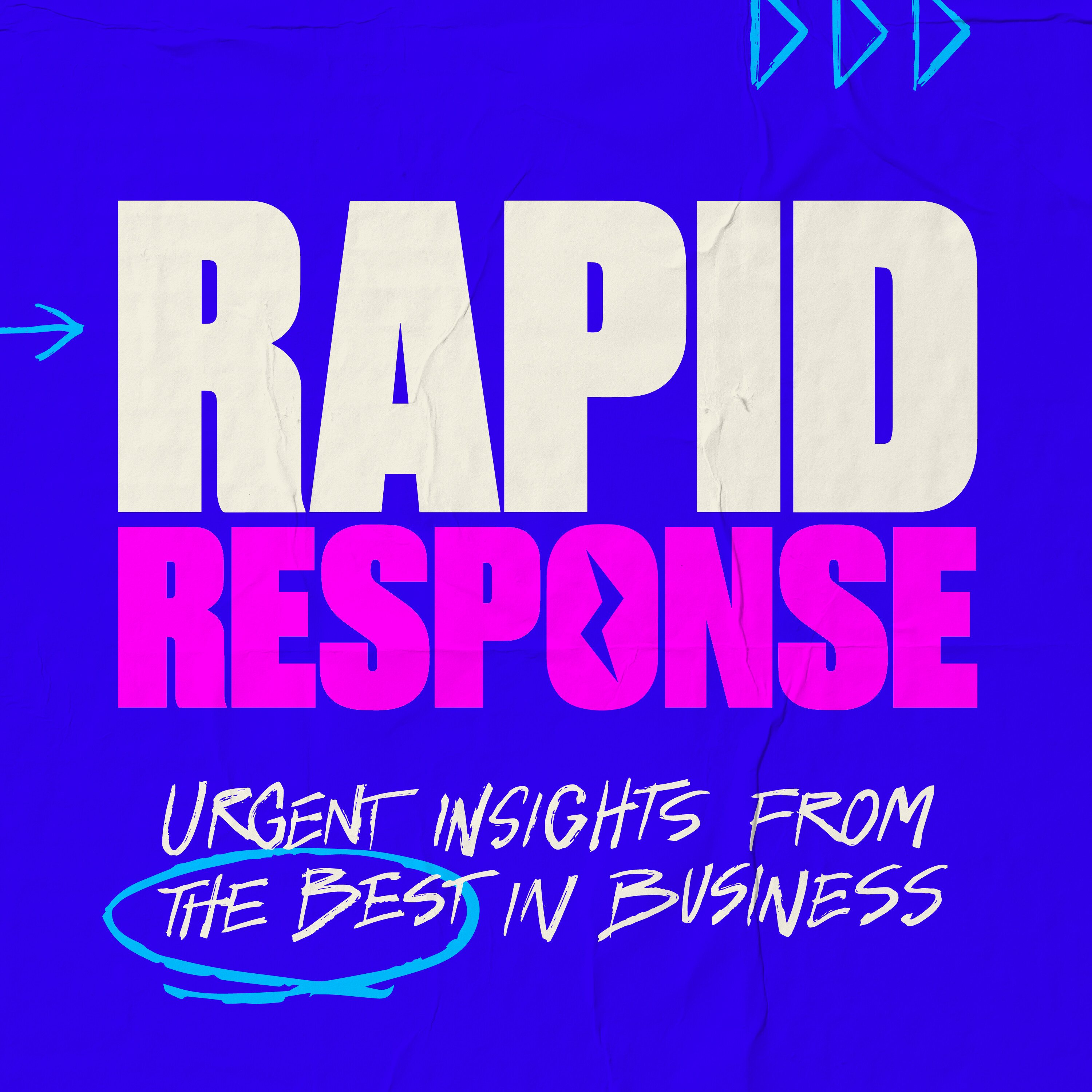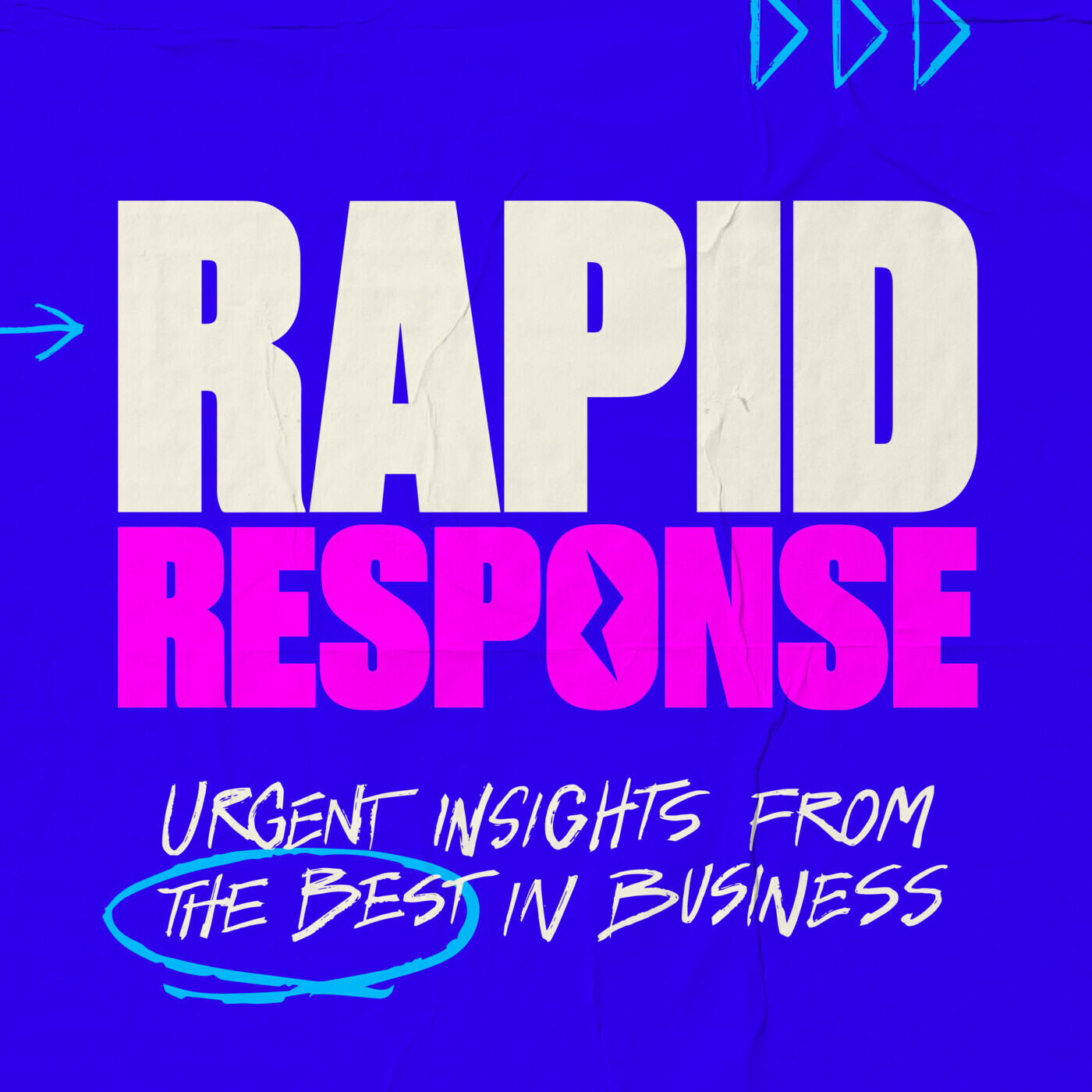
May 28, 2024 • 24min
Rapid Response: Robinhood confronts a GameStop sequel, w/CEO Vlad Tenev
Masters of Scale
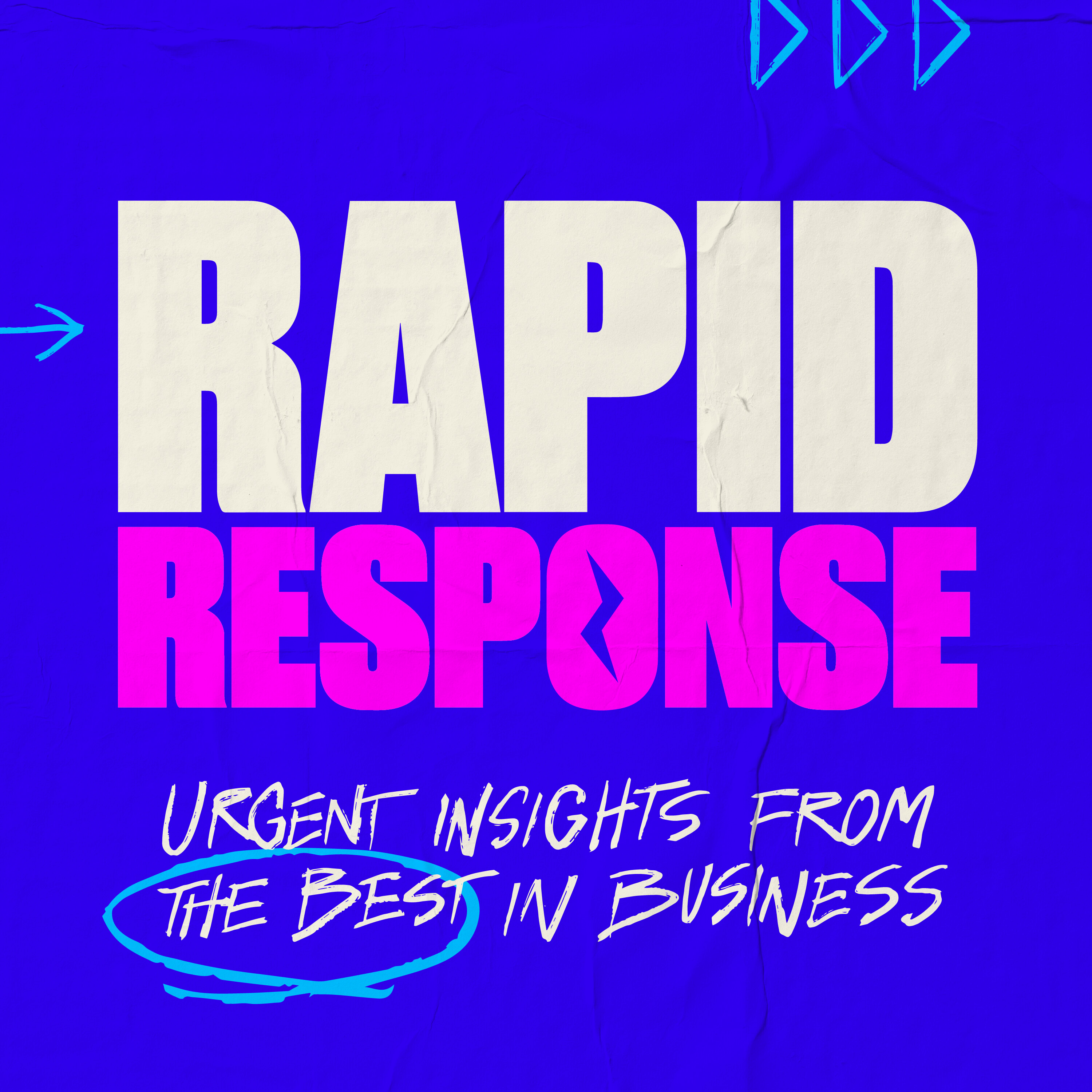
Key Takeaways
- Meme stocks are back: GameStop and AMC saw their shares skyrocket again recently, reminiscent of the 2021 frenzy. Robinhood experienced one of its highest trading volume days in the past 12 months.
- 24-hour trading: Robinhood now offers 24-hour trading on over 900 stocks, 5 days a week. Tenev believes 24-hour trading will become the norm and doesn't foresee negative consequences.
- Robinhood's business model: The company aims to be #1 in market share for active trading while also offering mass market products like high-yield savings and retirement accounts. Tenev compares it to a car manufacturer with both niche performance vehicles and mass market SUVs.
- Democratizing finance: Robinhood's philosophy is to provide good tools for customers to make their own decisions, not to be paternalistic. Tenev believes in free markets and people's ability to make choices with their money.
- Disrupting incumbents: By offering commission-free trades and now retirement account matching, Robinhood is attacking the high margins of incumbent brokers. This has led to industry-wide changes.
- Going public: Becoming a public company put pressure on Robinhood to diversify its business model and adapt to changing market conditions like rising interest rates. Tenev sees this as ultimately beneficial.
- Leadership growth: Tenev has focused on being more authentic as a leader rather than trying to meet others' expectations of how a CEO should act.
- Long-term vision: Robinhood aims to be the default destination for the largest wealth transfer in history as assets move from older generations to millennials over the coming decades.
Introduction
In this episode of Masters of Scale, host Bob Safian interviews Vlad Tenev, co-founder and CEO of Robinhood, the popular investment app. The conversation covers the recent resurgence of meme stocks, Robinhood's business model and growth, Tenev's leadership journey, and the company's vision for the future of finance.
Robinhood has been a disruptive force in the financial industry since its founding, with its commission-free trading model forcing incumbents to adapt. Now as a public company, Robinhood continues to innovate with features like 24-hour trading while expanding into more traditional offerings like retirement accounts.
Tenev shares his perspective on democratizing finance, the challenges of leading a public company, and how his immigrant background shapes his view of financial markets. The discussion provides insight into Robinhood's strategy and Tenev's evolution as a leader.
Topics Discussed
The Return of Meme Stocks (02:26)
Tenev discusses the recent resurgence in meme stock trading, particularly around GameStop and AMC. He first noticed unusual activity on a Sunday night through Robinhood's 24-hour trading feature:
- Trading volume on April 14th was one of Robinhood's highest in the past 12 months
- Tenev stayed up late monitoring the situation, recalling the challenges from the 2021 meme stock frenzy
- He distinguishes Robinhood from typical "meme stocks," seeing the company as more of a disruptive force in the industry
"I noticed that there was something going on in social media. And fortunately, the first thing I checked there is, are people upset at Robinhood? What's the sentiment? And that indicates whether we're having some kind of issue. And fortunately, things were by and large running smoothly."
Robinhood's Business Model and Philosophy (05:49)
Tenev explains Robinhood's approach to serving different types of investors:
- Active trading: Aims to be #1 in market share for options, equities, 24-hour trading, and new assets like futures
- Mass market products: Offers high-yield savings, retirement accounts, and advisory services
- Compares the model to a car manufacturer with both niche performance vehicles and mass market SUVs
On Robinhood's philosophy:
- Focuses on creating good tools for customers rather than providing financial advice
- Believes in free markets and people's ability to make decisions with their money
- Aims to provide contextual information and news to help inform customers
"I think part of what makes America America is the ability to kind of make decisions with what you do with your money."
Tenev's Background and Perspective on Financial Markets (10:08)
Tenev shares how his immigrant experience from Bulgaria shapes his view of financial markets:
- Witnessed hyperinflation of 1000% in Bulgaria in 1997
- Gained appreciation for stable currency and liquid financial systems in the US
- Sees the need for cryptocurrency in countries with unstable currencies
"You kind of appreciate the value you have in this country of a stable currency, that's the reserve currency, and kind of a liquid, vibrant financial system that has been the envy of the world and has driven so much wealth creation."
24-Hour Trading and Market Evolution (14:59)
Tenev discusses Robinhood's 24-hour trading feature and his thoughts on the future of markets:
- Robinhood now offers 24-hour trading on over 900 stocks, 5 days a week
- Believes 24-hour trading will become the norm for traditional markets
- Doesn't foresee negative consequences, comparing it to cryptocurrency markets that already trade 24/7
- Views limited trading hours as archaic in the age of electronic trading
"It seems just archaic to me. It's like, what if Amazon was open from nine to four? It's all happening electronically, so there's no reason for it."
Robinhood's Impact on the Industry (20:03)
Tenev explains how Robinhood has disrupted incumbent brokers:
- Forced other brokers to adopt commission-free trading in 2019
- Now offering retirement account matching, which no other broker does
- Uses better economics and technology to gain cost advantages over incumbents
- Sees customers transferring accounts from traditional brokers to Robinhood
"If we can attack the margins that the incumbents typically have in our industry, and we also have a technology foundation that gives us an operating cost advantage, it's sort of like a stacked advantage."
Leadership Growth and Going Public (21:33)
Tenev reflects on how becoming a public company has impacted Robinhood and his own leadership:
- Pressure of quarterly reporting forced the company to diversify and adapt quickly
- Helped Robinhood become more robust and resilient in face of changing market conditions
- Tenev has focused on being more authentic rather than trying to meet others' expectations of a CEO
"I think going public, while painful, was just a very, very big engine of growth and development for the company and for me personally."
Robinhood's Long-Term Vision (24:24)
Tenev outlines Robinhood's ambitious goals for the future:
- Aim to be the custodian for all customers' financial assets globally
- Position Robinhood as the default destination for wealth transfer from older generations to millennials
- Expand capabilities to handle more complex financial products and larger asset bases
"We should be the premier default destination for what's going to be the largest wealth transfer in history, and I think that'll keep snowballing over the coming decades."
Conclusion
Vlad Tenev and Robinhood continue to push the boundaries of retail investing, aiming to democratize finance while disrupting incumbent brokers. The company's journey from a commission-free trading app to a diversified financial services platform reflects both the opportunities and challenges of rapid growth in the fintech space.
As Robinhood expands its offerings and navigates regulatory scrutiny, Tenev's leadership style has evolved to embrace authenticity and long-term thinking. The company's vision of becoming the primary financial platform for a new generation of investors is ambitious, but aligns with broader trends of digital transformation in finance.
While concerns remain about the gamification of investing and the potential risks for inexperienced traders, Robinhood's impact on the industry is undeniable. As the company continues to innovate and expand, it will likely play a significant role in shaping the future of personal finance and wealth management.

